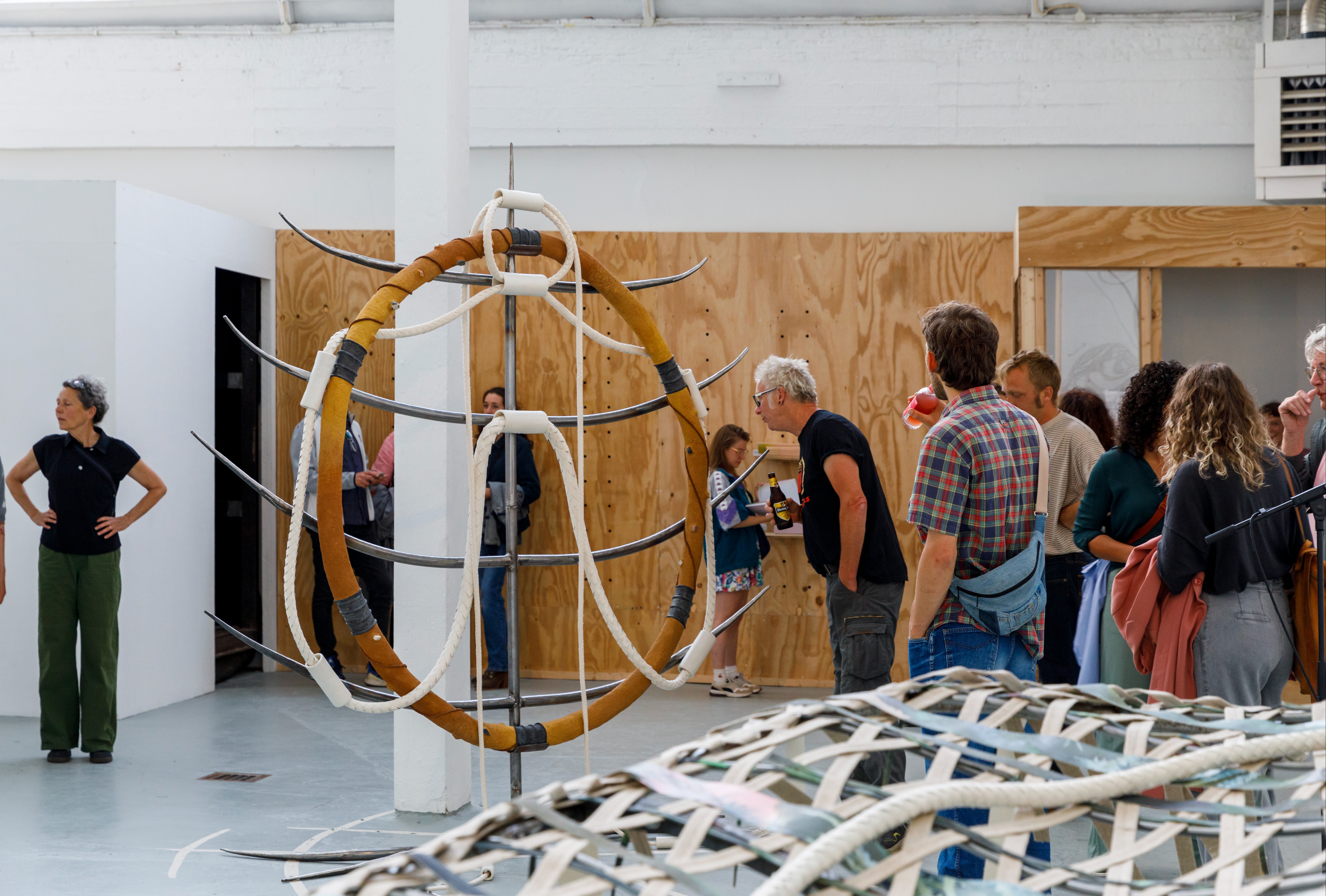About
For more than 30 years POST has been the place to engage with contemporary, critical art in Gelderland. Founded in university city Nijmegen and connected to the academy of the arts in Arnhem since 2019, POST functions as an interlocal platform where theory and practice meet. POST develops exhibitions and activities from pressing stories and current social issues with engagement, experiment and exchange at their core. POST connects and stimulates the development of emerging and established artists, curators and writers. In this manner, POST is a springboard in the region as well as a landing site for artists outside the region, both nationally and internationally.
From our own commitment, our emancipatory history and the progressive left-wing cities that we operate from, we devise an art programme that teaches us more about contemporary issues. POST presents art that responds to the balance of global power on a social, political, ecological and technological level. Works of art that show the publically pluriform, surprising and radical perspectives by means of research, experiment and innovative presentations. By reflecting on the past, asking questions about the present and presenting radical speculations on the future, we encourage a diverse audience to formulate their own vision, think critically and take a renewed look at society at large.
POST refers to the preposition 'post-' as the position from which we operate; a meantime in which the past has not yet completely been released and the future slowly seeps into the present. In this way, the activistic ideology from which POST emerges remains the core of who we are. In society we are currently confronted with various crises and challenges, such as the polarisation that turns to racism and violence, the ecological crisis, the manifold military conflicts, the threat of AI or the ever-increasing inequality. As a platform, we acknowledge the urgency to open these topics to discussion in providing a podium, and therefore working with socially engaged artists. Our activist history with roots in the squatting scene gives rise to a natural determination and urgency not to remain on the sidelines but to move forward in a hopeful manner. We aim to position the sociocritical and occasionally dystopian topics in a context of hope, because hope activates.
